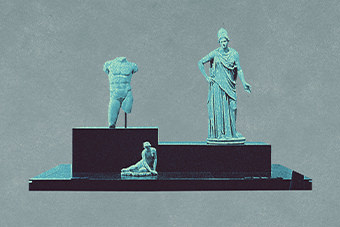The National Gallery of Portraits was set up in 1977 in the heart of Chandigarh. It was later renovated and reopened on January 13 2007, inaugurated by H.E. (Retd.) S. F. Rodrigues, PVSM, VSM, the then Governor of Punjab and Administrator of the Union Territory of Chandigarh. The musuem has a vibrant and varied collection of portraits, busts, sculptures, images, prints of rare documents, photos and paintings based on India’s struggle for independence.
A big rectangular hall comprises the main exhibition area with 41 information panels describing the details of the various movements and conspiracies during the long freedom struggle of India from British rule. The panels talk about the events of Ghadar movement (1914–15), Indian revolutionaries abroad (1907–13), trials and hangings of Ghadrites (1915–19), and the Kamagatamaru episode (1914–15). The prints of newspapers and photographs of the victims are also displayed. Portrait of Rani Laxmi Bai of Jhansi made by Jagdish Lal Ahuja with plaster of Paris is also on display in a glass box. A cloth painting of the Taj Mahal, worked with shimmering tiles, adds glamour to the exhibits. A diorama depicts the burning of foreign cloth during the Swadeshi Movement, made by Baldev Raj Rattan. Paintings of the Jallianwala Bagh, Sarfaroshi Ki Tammana, Do or Die, Azad Hind Fauz by J. L. Ahuja decorates the display boards.
The building where the museum is located also houses the Central State Library. Other administrative offices and the market areas are in the vicinity.
More Information
Getting there
Average duration of visit
3-4 hours
Museum administered by
State Government
Person in charge
Updated
Quick Facts
Address:
National Gallery of Portraits, Sector 17
Visiting Time:
Sunday: 10 am - 4.30 pm
Monday: Closed
Tuesday: 10 am - 4.30 pm
Wednesday: 10 am - 4.30 pm
Thursday: 10 am - 4.30 pm
Friday: 10 am - 4.30 pm
Saturday: 10 am - 4.30 pm
The Museum remains closed on public holidays
Entry Fees:
Entry is free




